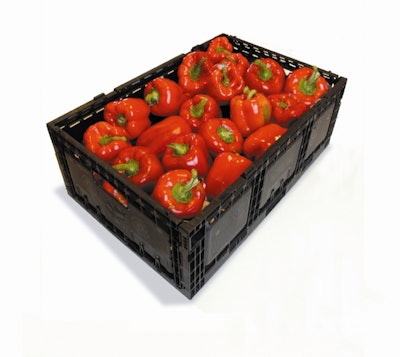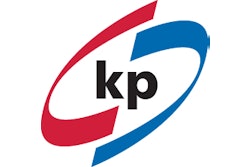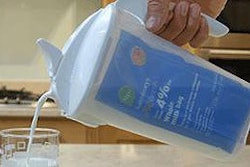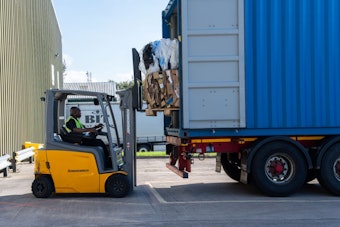
In Australia, Coles, a leading supermarket chain, introduced an integrated packaging system into its $2 billion fresh produce segment at 650 stores based on Reusable Plastic Containers (RPCs).
The solution, delivered over the course of two years by Ian Neeland, a Cole's employee at the start of the project and now chief executive with Trans.L Systems (www.translsystems.com), involved the conversion of 450 suppliers to RPCs. Folded flat when not in use, the RPCs can be quickly erected either manually or automatically, the latter at rates of 36/min. Some of Coles’ suppliers use bag inserters ahead of filling with produce.4
Provided in four sizes, the RPCs are manufactured by Viscount Plastic Australia (www.viscount.com.au), a division of Lin Pac Plastics (www.linpac.com), based on design input from Rehrig Pacific (www.rehrigpacific.com).
All fixed assets associated with the implementation, including 4 million RPCs and seven wash plants, are owned by Coles. Currently, 1 million RPCs are used weekly within Coles’ system.
RPCs produce key benefits
The conversion from corrugated and other containers to RPCs provided Coles with these benefits:
• Delivers fresher produce to customers more quickly by reducing by one day the time most fruit and vegetables spend in the distribution channel. This also increases quality and efficiency and reduces waste.
• Reduces the impact on the environment
• Makes the supply chain more seamless by standardizing suppliers on the same package format.
• Lowers operating costs by 25% by automating RPC washing. Automation for all washing plants was developed by Fibre King Pty Ltd. (www.fibreking.com.au), Trans.L Systems' partner.
Additional benefits were realized when Coles redesigned its store fixtures with the RPCs in mind. Improvements included fast replenishment of product directly to shelf and ergonomic lifting heights and reach. As a result of the latter, safety incidences in the produce section of stores have been reduced by 19%.
Packaging gains through loss
The RPCs removed more than 35,000 tons of packaging from Coles' supply chain. An independent Life Cycle Assessment (LCA) revealed that by replacing paper-based packaging such as fibreboard, Coles reduced the impact on the environment by 85%. These benefits included the following reductions:
• Amount of water used for packaging by 92%, the equivalent of 300 Olympic-size swimming pools.
• Amount of energy required for transportation cut by 65%, the equivalent energy used by nearly 9,000 people.
• Greenhouse gas emissions reduced more than 60% or 85,000 tons/yr—the equivalent of taking 20,400 cars off the road.
The Coles RPC implementation for produce was completed in December 2007.
-Rick Lingle
























